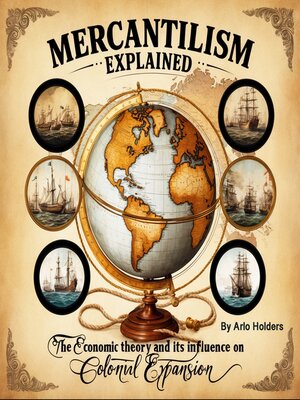Mercantilism Explained
audiobook (Unabridged) ∣ The Economic Theory and Its Influence on Colonial Expansion
By Arlo Holders

Sign up to save your library
With an OverDrive account, you can save your favorite libraries for at-a-glance information about availability. Find out more about OverDrive accounts.
Find this title in Libby, the library reading app by OverDrive.



Search for a digital library with this title
Title found at these libraries:
| Library Name | Distance |
|---|---|
| Loading... |
Mercantilism, a dominant economic theory from the 16th to the 18th century, played a pivotal role in shaping the economic and political landscape of early modern Europe. Rooted in the belief that a nation's wealth and power were measured by its stockpile of precious metals, particularly gold and silver, mercantilism emphasized the importance of maintaining a favorable balance of trade. Nations sought to maximize exports while minimizing imports, often employing protectionist policies to achieve this goal. This approach reflected the belief that global wealth was finite, creating fierce competition among nations to secure the largest share of resources and economic advantage.
The historical context of mercantilism is deeply intertwined with the Age of Exploration and the rise of powerful nation-states. During this period, European powers such as Spain, Portugal, England, France, and the Netherlands expanded their empires overseas, establishing colonies that served as both sources of raw materials and markets for finished goods. These colonies were central to mercantilist strategies, enabling mother countries to extract wealth and resources while controlling trade to their advantage. This symbiotic relationship between mercantilism and colonial expansion would shape the geopolitical dynamics of the time, fueling rivalries and conflicts between competing empires.
Central to mercantilism was the role of government intervention in the economy. Unlike modern free-market principles, mercantilist policies relied heavily on state control to regulate trade and protect domestic industries. Governments imposed tariffs on imported goods, subsidized local production, and established monopolies through chartered companies to ensure economic self-sufficiency and reduce dependence on foreign powers. This top-down approach sought to consolidate economic power within the state, reinforcing the notion that national prosperity and security were interconnected.







